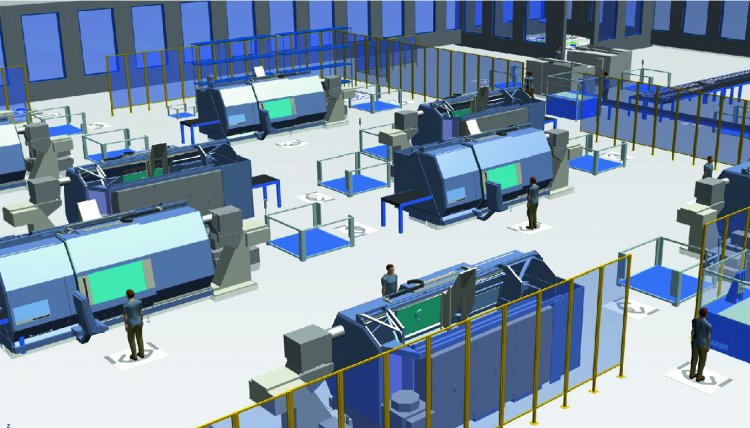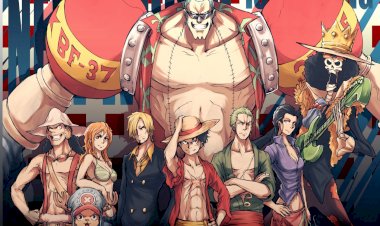Industry and Education are Embedded
Industries and education when well collaborated can become the agents of change. But skilling, upskilling, and reskilling should be prioritized to match the pace of development.

At the dawn of the Industrial Revolution 4.0 marked by the presence of 5G, Nanotechnology, Machine Learning, Artificial Intelligence, Robotics, Biotechnology, Internet of things, Orbital flights, Space travel, etc. it becomes pertinent to acknowledge the role skills have played to bring mankind to such an advancement. The quest for innovation and development is the hallmark of humankind. Human has consistently strived to make things easier and simpler. And this human effort is well reflected and can be traced through the various revolutions it has undergone beginning from the Renaissance to the era of Artificial Intelligence. From the making of fire by rubbing stones to smart home, how fascinating and remarkable this journey has been! isn't it?
This journey is certainly bagged by skills and entrepreneurship as its core. Had it not been for the entrepreneurial mindset, the world has not have reached so farther so fast. But have we ever wondered where these skills come from? Who provides them incentives to thrive? and what else can be done to expedite the act of skilling, upskilling, and reskilling? Well, skills find numerous ways to thrive but they, of course, need a conducive environment to grow consistently, at times skills come through practice, other times experimentation and situations stimulate them to grow but one thing is very clear amongst numerous speculations that consistent skill growth cannot be imagined without institutional backing. A proper framework, curriculum, and infrastructure are needed for skilling and skill up-gradation purposes. For instance, the industrial revolution in Europe and North America was heavily dependent on its universities.

FORBES.COM
Japan and Germany also ran the race of the industrial revolution on the shoulders of their universities only. Also, Universities in China have played a crucial role in introducing Western science and technology and training personnel necessary for industrial and technological progress.
Basically, Universities and Institutions are the breeding grounds of skills, experimentation, and entrepreneurship. The most advanced countries in terms of industries and technology happen to be so, through their universities only.
Many of the industrial regions of the US and UK have housed universities in their vicinity so that industry-specific innovation can take place. For example, the gown side (University) and the Town side (Industry) of Oxford University. The Sheffield University contributes to industries through its Engineering research. Cambridge University is a recognized leader in IT research. Sheffield, Cranfield university, university of Southhampton have remarkably contributed to the aerospace research of companies like Boeing and Airbus.

Also, Institutions like IITs, IIMs have been strong pillars in India's industrial and technological progress. Green Revolution, Blue revolution, and several other revolutions are the outcomes of its institutional prowess and research endeavor.
Industry and University are embedded, they have a mutual relationship. Universities provide a platform for generating hypotheses, making candidates theory-ready whereas industries qualify these hypotheses through experimentation.
Through basic cognizance, it can be well established that industry and education are very closely related. They are mutually dependent and the progress of one will lead to the progress of others.
But, at times, the major missing happens. we slip to look at Industry and Education as two sides of the same coin. We see them individually and prepare them as distinct disciplines and forget to collaborate with the two.
In most developing countries, employment is a perennial problem. Irrespective of having numerous job prospects people run from pillar to post for employment. In fact, the employment problem has its roots in the mismatch between the curriculum and the demands of the industry. Since these two are not in sync, employers, and candidates both find it difficult to survive.
If the aim of education is to make candidates jobs ready, (of course besides many other aims), why industries and employers are not taken considerably in the tasks of curriculum design and implementation?
Industries are often off finding candidates with proper skill sets and candidates often end up attaining jobs that do not match their aspirations. And this is prominently visible through the wide-stretching rate of Underemployment issues in many developing and underdeveloped countries. Therefore there is a pressing need to sync job providers and job seekers. Making industrialists a part of the curriculum development and skill training will end this twin problem. Many universities have been moving ahead with the collaboration from major industries to disseminate skills to other students on the demand of the industries.
Universities should collaborate with universities and must know what skill sets are in demand in the market and students can be trained thoroughly with that skills. This will not only ascertain students with jobs once they finish their courses but also help industries to get the right candidate with the right skill. Guest lectures by industrial professionals can further help students and universities to understand the curriculum in a better manner. Internships can be provided to give practical experience to students. Incubation centers will also further the zeal for innovation and experimentation.
So, industries must not be seen as distant entities, they are prominent partners in innovation and entrepreneurship. Industries and education when well collaborated can become the agents of change. Bringing together industry and curriculum have the utmost potential to challenge the challenges. Together they carry the world of possibilities and opportunities.
What's Your Reaction?



































































































